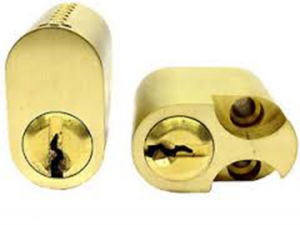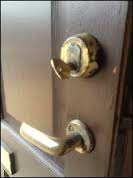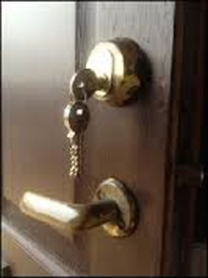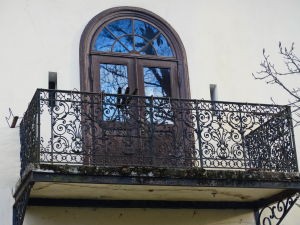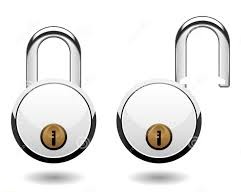Why you should look after your locks –
Most of us pay little attention to our locks until they go wrong, or need upgrading. Yet besides our mobile phones, they are one of our most used items. When you stop to think about how much abuse we put our locks and doors through, it’s a wonder they last as long as they do. Many of us have locks and doors that are barely holding together and the first we know about it, is when they fail completely and we are left locked out.
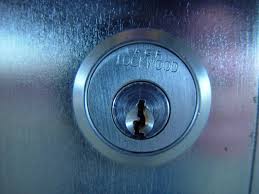
The industry recommends that we change our locks every five years, but that can be very expensive, so servicing is important to keep your locks running in tip-top condition. Here is a rundown of the various problems that can arise;
The common enemy of all locks and doors is the weather. Rain holds in wooden doors and causes rusting to metal parts. Nearer the coast, sand and grit finds its way into locks and locking mechanisms. The worst affected of all are wooden doors with multi-point locking mechanisms. I often find these with severe rust at the bottom, especially when there is a bolt that can sit in a mini pool of water. I have had more cases of this than I can remember, and most times the mechanism finally sticks fast in the locked position, leading to many problems in trying to get the door open without damage. Simple maintenance can prevent high repair costs if dealt with properly.
Night Latches (Yale Locks), are quite prone to internal wear. The big problem with these is that some of the more complex ones can be difficult to remove from the door, and even harder to re-affix. Cheaper versions of these locks are prone to spring failures and loose latch buttons are my most common reason for emergency call outs, especially with holiday homes. If you own a holiday home, maintenance is a tax recoverable cost, so you have no reason to not have your locks serviced, preferably at the beginning and end of the high season. Not only is this good practice, it reduces the chances of your customers having part of their holiday ruined having to wait for a locksmith to arrive and then carry out the work required.
Mortice locks (Chubb) have a whole host of potential problems, most caused by bad initial installation. If the lock keep is not placed correctly within the door frame, or the door swells, moving the lock position, then undue pressure required to turn the key, starts to wear the locking levers inside the lock, or if you are using cheaper copy keys, these can wear too. All of this eventually leads to a case of the lock seizing, usually in the locked position with you on the outside, desperate to get in. This often means the lock needs to be drilled to gain access, leaving unsightly holes in your door.
Another problem that occurs is when locks are replaced, a different brand is used. If the new lock is slightly too wide for the hole it is going into, the lock gets a bit squashed, which causes uneven working of the inner parts, and eventually, seizure. If the new lock is too thin for the hole, the screws that hold the lock together can loosen and the lever springs can escape through the gap as the lock separates. If there is any sign of stiff operation with these locks, they should be checked out immediately, including instances where the door must be pushed/pulled to ensure the lock operates and especially those instances where you have to have a special knack of operation. An example of this came to light for me recently when a customer told me he could only unlock his door by apply pressure up and to the left when rotating the key. We worked out this was the case with certain copy keys that had ben copied badly and that the originals worked fine.
The cylinders of multi-point locks can only be treated with a little oil squirted into the keyway, but the mechanisms themselves need much more. There are various points that can be tweaked and adjusted to ensure these things run smoothly. Remember, the handles should lift and the key should turn nearly as easily in the closed position as it does in the open position. As the problem can build over time, many people don’t realise they are using extra force to lift the handles unless they try the door open as well as closed. French doors and over sized doors are particularly prone to dropping.
Aluminium doors are a completely different problem. Nearly always the mechanism is sealed within the door itself and, at best, difficult to get into. If you have an aluminium door and are experiencing problems of any kind, you will need to look for a double glazing repair specialist who deals with metal doors. Be prepared for the possible cost of full door replacement as parts are often obsolete. I have had occasions where people have not even realised their doors are aluminium, you probably know whether your door is aluminium, but I will just give a couple of indicators just in case: Aluminium doors tend to be silver or black and often are built into a dark wood surround, whereas upvc doors are usually white or brown and do not have a wood surround. Hardly any new doors are aluminium (although there are still some manufacturers) so if the double glazed units in your home are aluminium, and they were fitted before you took possession, remember they are probably old and might need looking at.
Rim Locks are the locks that bolt on to the inside of doors and have very long keys, as those keys need to pass all the way through the door form the outside and then into the lock. The door knob is to one side of the key hole rather than above it. These locks are designed for internal use, but I do see many of them on front/back doors so I think they deserve a mention. Firstly, these are not insurance standard locks, so if your does not have another type of lock in addition to one of these, you are not covered by insurance. Besides that, these are vary basic locks, often easy to open with a standard key available to anyone else who has bought one of these locks. The internal parts of these locks are also easy to bend out of shape, but seem to break keys before they ever bend back again. It is much better to invest in a better standard of lock if you have one these.
As we have just come out of winter, now is the best time to check your locks. Lock servicing programmes are available on a tailor made basis to suit your needs. Please call to discuss your personal requirements. You can find my number on the contacts page of this web site.
Thanks for reading.
